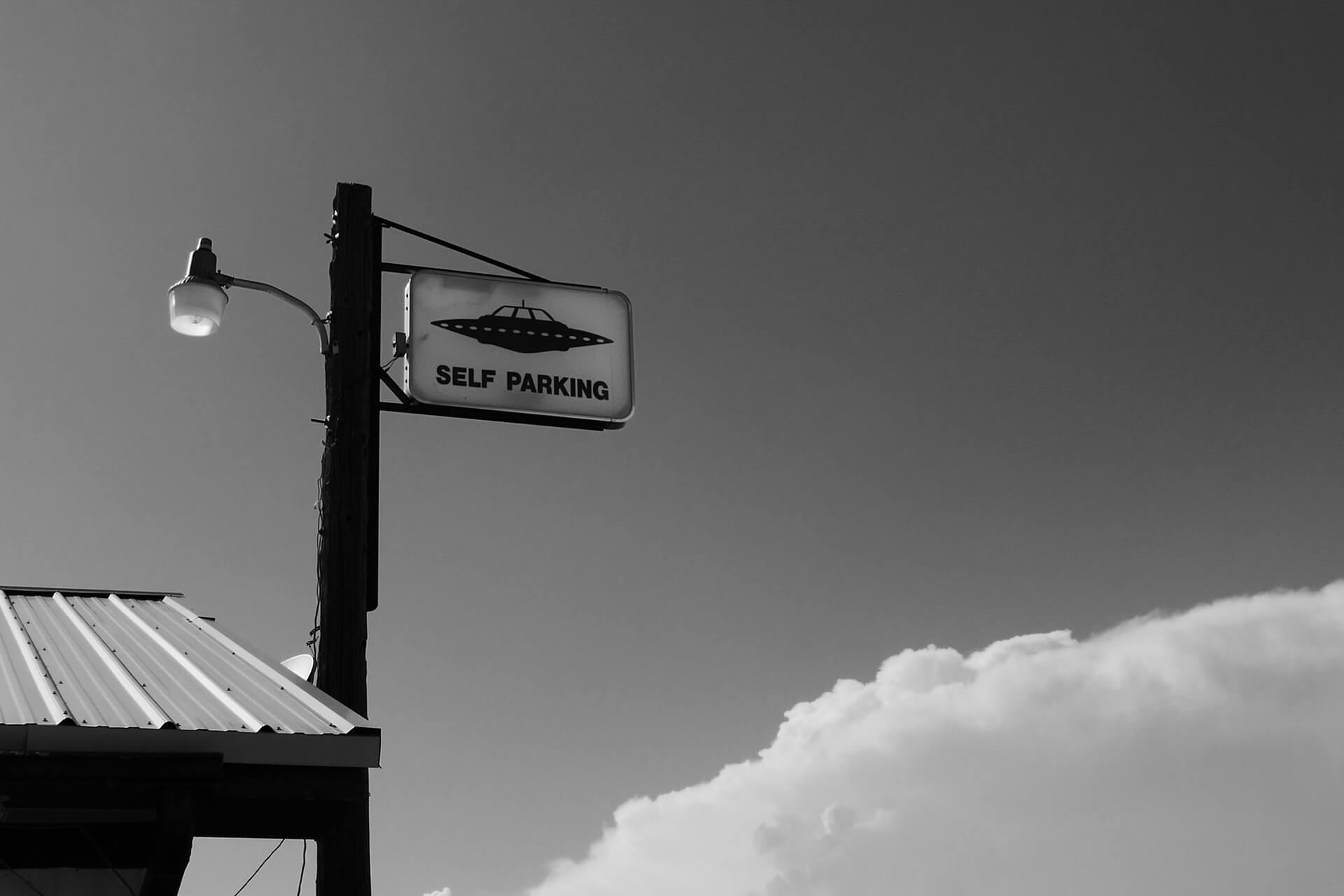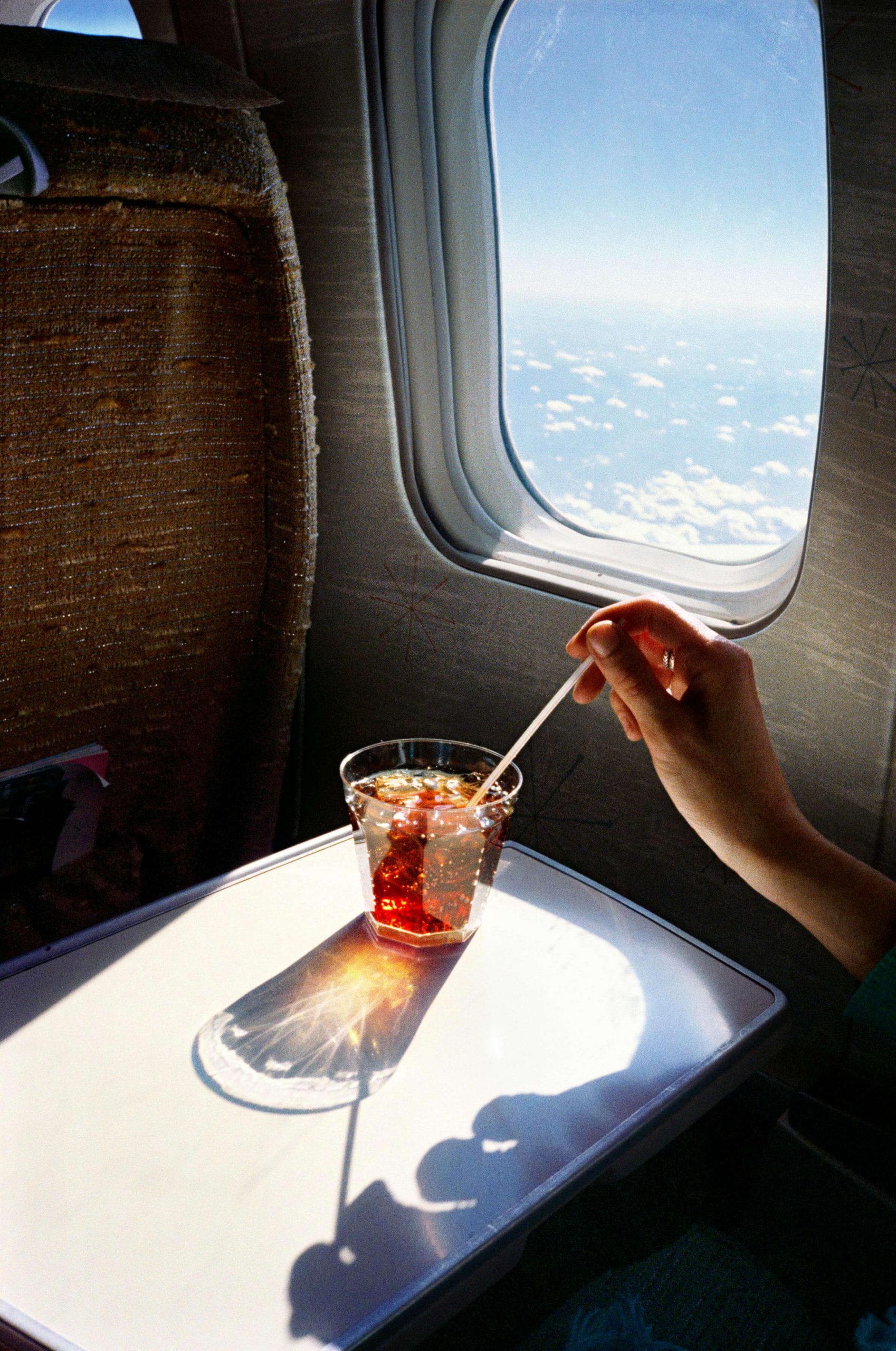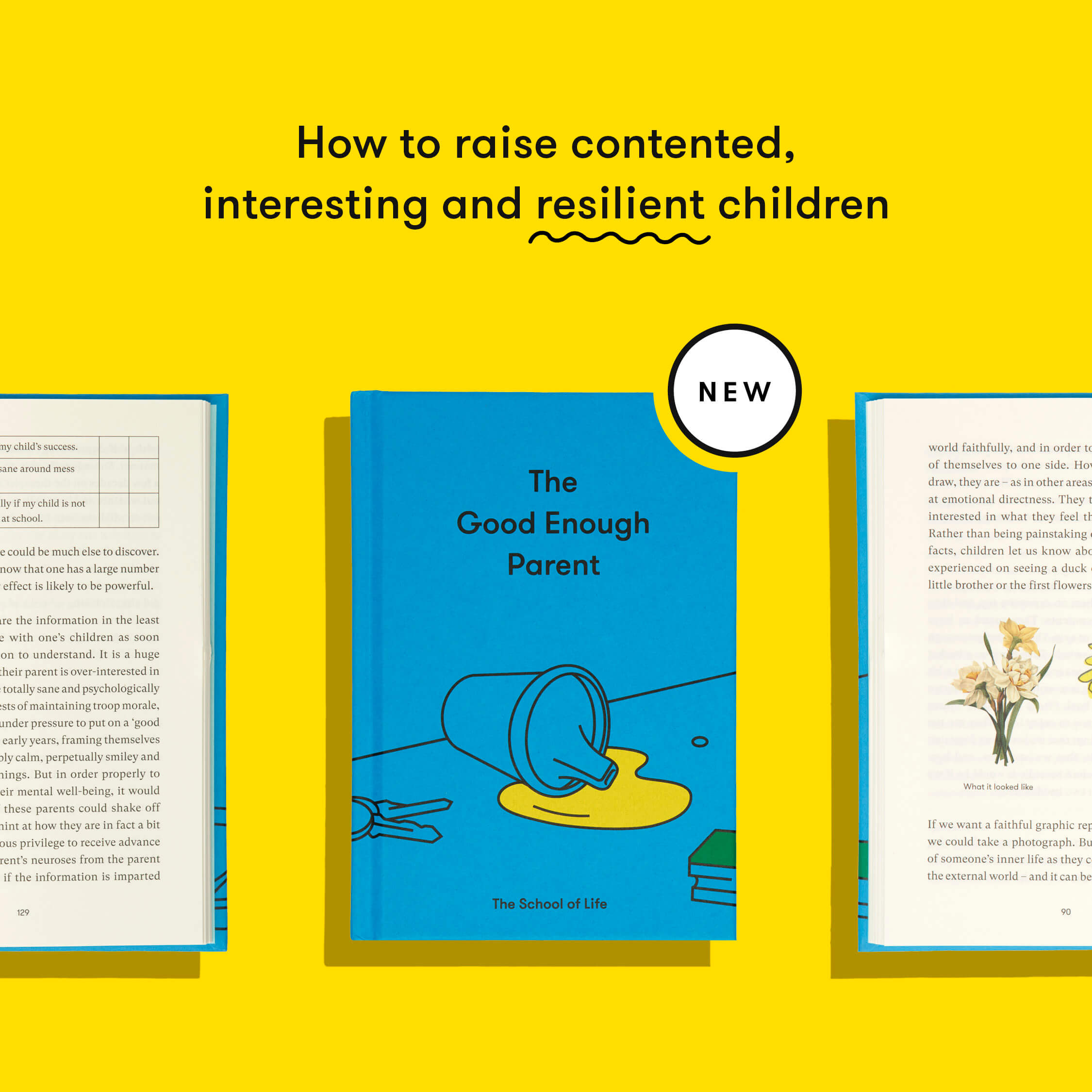Relationships • Parenting
On the Curiosity of Children
One of the things it’s easiest to forget about children is that they are aliens recently descended from another planet. In the way they look at everything around them, in the wide open stares they give to ways of living and being that have grown utterly familiar and therefore invisible to our eyes, they may as well have stepped off a galactic aircraft in an unobserved corner of a wheatfield. Coming from so far away, everything on our earth is to them new, interesting and worthy of examination. Nothing is to be taken for granted. There are so many questions to ask. The whole world is, via their as yet unmarked minds, born anew.

In a much more limited way, we know from our experiences of travelling how much, in an unfamiliar country, we suddenly notice and are stimulated by. A scene which leaves the locals entirely unimpressed will appear to us filled with wonder and surprise. Shortly after landing in a new place, we might – for example – head out into the bustling streets of the capital. We might spot a man in a barbershop and reflect on how extraordinary the shaving ritual looks here, staring in utter bewilderment from a traffic island, and being almost run down by a family on a scooter (carrying a chicken) in the process. There might be a cave-like shop displaying hundreds of different sorts of nuts and spices of a variety we had never guessed existed. Across a stall two women might be engaged in a passionate discussion about a famous local singer whose stellar career and colourful love life we had never suspected. In a corner by a pomegranate juice stand, a man might be reading a large newspaper and we would ask ourselves what roiling political events might have provoked the flowing, curling words of a headline splashed across the front. A little time in this new realm hints at priorities and concerns completely detached from ours, the foreign land is a symbol of a basic idea: that the world is so much bigger and more mysterious than we suppose day to day; that what we know comprises only a tiny part of what there is – and that there is never a good excuse for feeling bored or imagining that we understand very much of anything.
Travellers aside, the other group who cannot forget how surprising, beautiful and worthy of deep examination everything is are artists. The basic precondition of being an artist is not so much that one knows how to draw, sculpt or photograph, it’s that one refuses to get bored, that one insists on being amazed. Think of Albrecht Dürer at the start of the sixteenth century, already thirty-five years old, but looking at hands as though he had never seen any before, and appreciating with some of the intensity of a visitor from planet Kepler 22b in the constellation of Cygnus the bizarreness of how fingers interlace, how foldable they are, in what varied shapes and textures they come in, how different the skin can be on a thumb compared to on an index finger, how expressive a knuckle can be and what wonders of complex geometry lie in a folded palm.

Or think of the American photographer William Eggleston, his attention detained in a cafe somewhere in suburbia not by any overtly grand political event or high-status local, but by the sight of a condiment display on a table, a small bottle of tabasco illuminated by a shaft of light revealing itself as a near transcendent object around which more pious societies than our own might have chosen to found a new religion; or a set of pickles emerging from his lens as no less awe inspiring than a specimen jar containing the limbs of a long deceased leviathan of the deep in the vaults of a natural history museum.

Like artists and travellers, only more so, small children too cannot see anything as ‘normal.’ They spot the button on our jacket and ask themselves: what is this dazzling object (easily as interesting as a lightswitch or my toes), what enables it to stay where it is, what would it taste like, what would happen if one struck it with a knife, how would it respond to being coated in apple sauce, might it make a noise if one blew through the four little holes at its center, how strongly might it resist a tug? Then there is a pencil: by what mysterious combination of elements does this contraption appear to leak out a grey line when pressed against paper, but lets out not very much at all when pushed against a blanket or a sister’s cheek; does it matter what direction one is holding it up in, what would happen if one threw it at the dog across the room or dropped it quietly in the sink?
All the great scientific discoveries and works of art have been made by people who looked at things with the naivety of children – and conversely, all the world-weariness and boredom has been the result of decades-old humans allowing habit to get in the way of astonishment. We should, in the area of curiosity, all become children’s attentive pupils.
The problem is that the questions tend to come far too fast, the curiosity is too rampant, undisciplined and at odds with what we’re trying to get done – so we end up wishing there might be a bit less curiosity and a bit more apathy. We’re also quite tired. Irritated, we say that it is just the way it is and has always been and could you please, please get a move on. It’s understandably a bit more important to make it to the shops to pick up a magazine than to stay rooted in one spot for over four minutes, staring at a weed growing out of a wall, as if we might be the 19th century German explorer Alexander von Humboldt investigating the flora of Ecuador’s Chimborazo volcano. We are sending out a message: that being curious and poking at the apparent ‘normality’ of things is not a particularly estimable activity. If a child wants to be like us one day, a respectable impressive adult, they should take care to be rather less amazed.
The tension often comes to the fore around vacuuming. The child is, understandably, dazzled. A machine the size of two pillow is letting out a thunderous sound. At the end of a slightly squashy hose, something is sucking in air with terrifying but also mesmerising force: you can put the car keys thirty centimeters away from the hose and they’ll actually start to move across the carpet and promptly disappear with a fascinating clink-clunk-clink-boom sound into the bowels of the machine. Then there’s a button you can press and the entire tangled cable to which the beast is fixed to the wall goes taut and fairly yanks back the contraption as if it were a furious dog on a leash. There is little option for a child but to be as transfixed as the most beatific early customer in adverts from the 1950s – when wonder was, in this area at least, still allowed.

And yet, naturally, that’s hardly the state of mind of the busy parent, cursing housework, without much energy to contemplate young Alexander von Humboldt or Michael Faraday tinkering on the carpet beside them.
Much the same dynamic is likely to be repeated around aeroplanes. How bored we are of these dirty machines and how revolted we are by airports, how weary we’ve become of cabin announcements and moving maps, of inflight trays and safety cards; how cold our hearts are to the sight of the engines slung beneath those long flexible wings powering us over puffy small clouds like those in the backdrop of a Piero della Francesca altarpiece. But the child knows that nothing up here is normal and isn’t about to let go of their fascination, even if it means a scream or two. From an opposing window seat, William Eggleston, understands only too well.

We sometimes ask ourselves what the Romans might have thought of our modern bathrooms, or what a Medieval knight might have made of a shopping center or phone. We can more accurately ask ourselves what the first man or woman to emerge from Africa’s Rift Valley would have made of our lives – because we have our very own version right to hand.
Every new human provides our species with a chance to return to first principles and rethink everything from the ground up. We should allow the child to ask its questions and to pop as many things as safely possible into its mouth. And when one can’t say why or how, we should – rather than look cross or bored – end by saying that we’ll go and out find out together and keep a list of topics of enquiry somewhere in the kitchen: how car indicators make that sound, why trees bud in spring, how clouds move, how long it would take for sheep to grow back their wool and why granny looks a bit cross whenever dad is in the room? A child’s greatest gift to us is to keep insisting that nothing is ever very normal.
The Good Enough Parent
New Book Out Now

The Good Enough Parent is a compendium of lessons about how children’s minds operate and what they need from those who look after them so they can develop into the best version of themselves.
Written in a tone that is encouraging, wry and soaked in years of experience, The Good Enough Parent is an intelligent guide to raising a child who will one day look back on their childhood with just the right mixture of gratitude, humour and love.



























